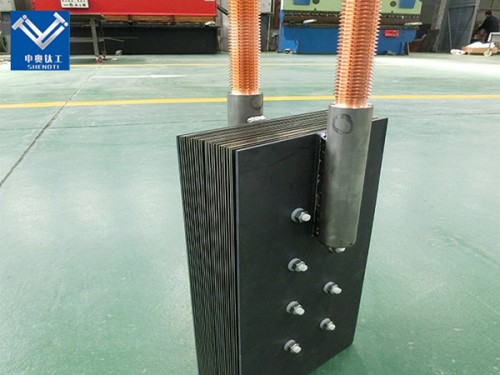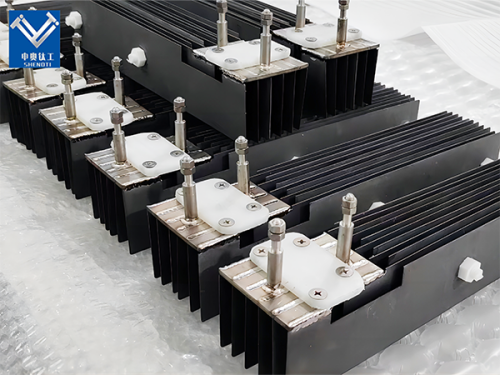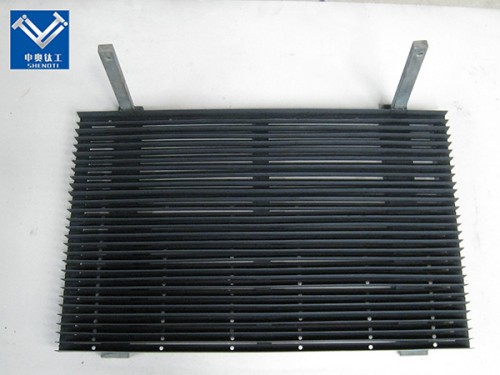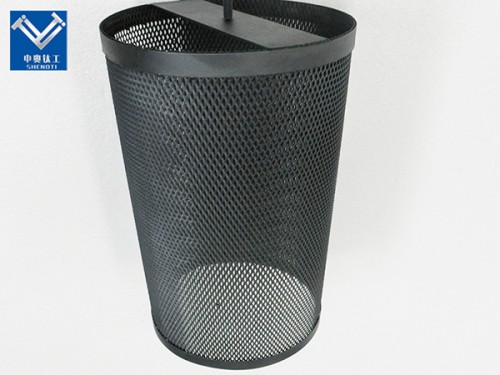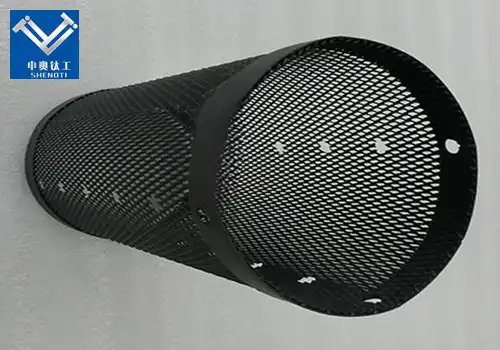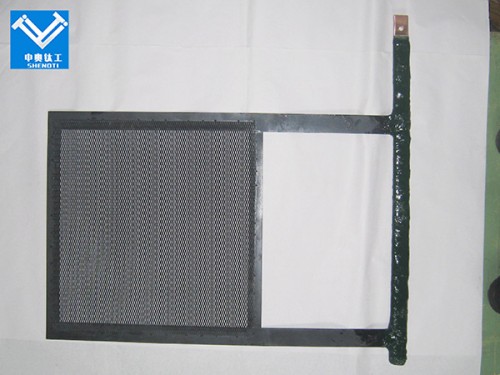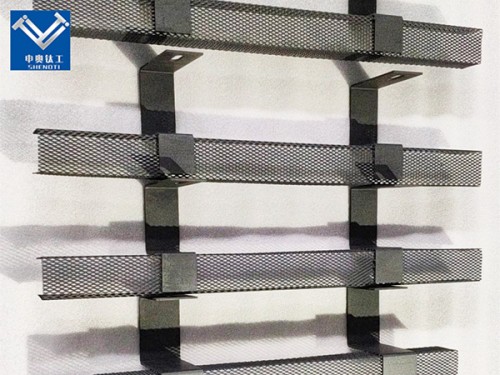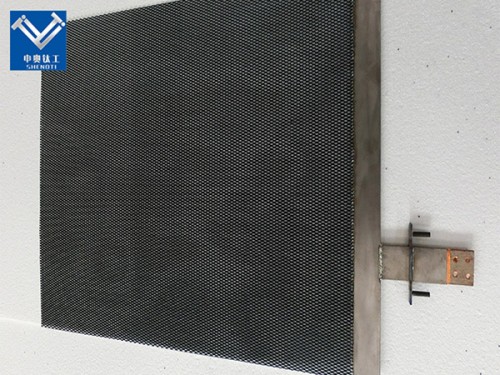
In which industries are titanium electrodes for salt chlorinators used?
2025-06-11 16:30:04
In which industries are titanium electrodes for salt chlorinators used?
Titanium electrodes—especially when coated with noble metal oxides—are the heart of salt chlorinator systems. These highly durable, corrosion-resistant electrodes are used across several industries that require chlorine generation, disinfection, or electrochemical processing.
1. What makes titanium electrodes ideal for salt chlorinators?
Industries that rely on saline electrolysis—such as water treatment, chlor-alkali production, pools/spas, and desalination—need electrodes that can withstand harsh environments. Titanium excels in these contexts:
Exceptional corrosion resistance: The natural oxide layer, aided by coatings like RuO₂ and IrO₂, makes titanium a top choice for brine and chlorine environments
High catalytic efficiency: Coated titanium electrodes promote effective chloride oxidation to chlorine with lower energy losses .
Mechanical strength and longevity: Titanium’s durability ensures strong lifetime performance—with 10 000–18 000 operational hours common in pool cells
Tailored coatings: MMO (mixed metal oxide) technology allows multiple coating options for optimized performance in different industries
2. Which industries utilize titanium electrodes in salt chlorination processes?
• Swimming pools & spas
Salt chlorination is a mainstream method for pool sanitation. Titanium anodes, coated with Ru/Ir oxides, generate chlorine on-site, reducing chlorine handling and stabilizing dosing
. Advantages include:
Continuous chlorine generation
Less chemical storage/handling
Reduced maintenance due to corrosion and scale resistance
• Drinking water and wastewater treatment
Titanium electrodes produce hypochlorous acid on demand—disinfecting municipal water, hospital effluent, and industrial wastewater. Benefits include broad-spectrum pathogen inactivation, adjustable dosing, and minimal DBPs .
• Food processing
Electrolyzed saline solutions—generated with titanium electrodes—are used to wash produce and disinfect processing equipment. They remove pesticide residues and pathogens safely without chemical additives .
• Irrigation & agricultural water
Electrolytic treatment of irrigation water controls waterborne pathogens without chlorine storage, avoids DBP formation, and offers adjustable disinfection power
• Chlor‑alkali and industrial chemical production
Large-scale chlorine, caustic soda, and hydrogen production relies on titanium-based MMO anodes. Their robustness in brine electrolysis reduces energy loss and downtime .
• Seawater desalination (electrochlorination)
Electrolysis is used for on-site chlorine and sodium hypochlorite generation for disinfection in desal plants, with titanium electrodes providing corrosion resistance and operational efficiency
• Metal finishing and plating
Titanium anodes coated with platinum oxides are employed for electroplating steel and copper, electrotinning, and surface finishing—thanks to corrosion resistance and stable conductivity
• Cathodic protection
Impressed current cathodic protection systems deploy titanium MMO anodes to prevent metal corrosion in buried or submerged structures—including bridges, pipelines, and marine platforms
3. How do titanium electrodes address common salt chlorinator problems?
Salt chlorinators face two major challenges: electrode degradation and scaling. Titanium electrodes effectively tackle both:
Degradation resistance: Unlike graphite or stainless steel, titanium anodes—with MMO coatings—last much longer in chlorine and brine
Scale mitigation: Titanium’s surface minimizes mineral buildup; self-cleaning and polarity-reversal designs enhance this effect
Stable chlorine output: Their catalytic efficiency ensures consistent chlorine levels even as water chemistries fluctuate
Energy economy: Higher conductivity and longevity translate to improved energy efficiency and lower long-term costs
4. How are titanium electrodes engineered for salt chlorination in pools?
The typical design features:
Substrate: Grade‑1 or Grade‑2 pure titanium plates
Coatings: RuO₂, IrO₂, PtO₂, or combos like Ruthenium-Iridium-titanium, typically 8–20 µm thick
Formats: Solid plates or expanded mesh, 7–11 plates per cell
Features: Polarity‑reversal, self‑cleaning designs, modular
Performance specs: Up to 50 g Cl₂/h (e.g., YJ‑RP50 model) with 10000–18000 h lifespan
MMO-coated electrodes are the industrial standard due to their stability, which stem from Beer's pioneering work in the 1960s
5. What environmental and operational trade‑offs should be considered?
• Higher upfront costs
Titanium–MMO systems cost more initially than traditional chlorination setups
• Electricity dependence
They require continuous power—unlike chemical dosing systems
• Salt buildup concerns
Salt-rich discharge may affect soil or freshwater ecosystems
• Coating wear
Over time, electrode coatings diminish (typically 5–7 years in pool use) and require replacement 。
Cross industry applications of titanium electrodes
|
Industry/Application |
Role of Titanium Electrodes |
|
Swimming pools & spas |
On-site chlorine generation; corrosion and scale-resistant |
|
Water treatment |
Produces disinfectants (HOCl, O₃); broad pathogen control |
|
Food processing |
Sanitizing produce and equipment without residual chemicals |
|
Agricultural irrigation |
On-site disinfection; avoids chlorine storage and DBPs |
|
Chlor alkali & chemicals |
Large-scale chlorine, NaOH, H₂ production via brine electrolysis |
|
Seawater desalination |
Produces disinfectants to treat brine and managed discharge |
|
Metal finishing & plating |
Durable anodes for electrotinning, plating, surface finishing |
|
Cathodic protection |
Protects buried/submerged infrastructure from corrosion |
Contact Us
For inquiries, partnerships, or custom electrode solutions:
Baoji City Shenao Metal Materials Co., Ltd. Email: zh@baojiti.com.cn
YOU MAY LIKE











